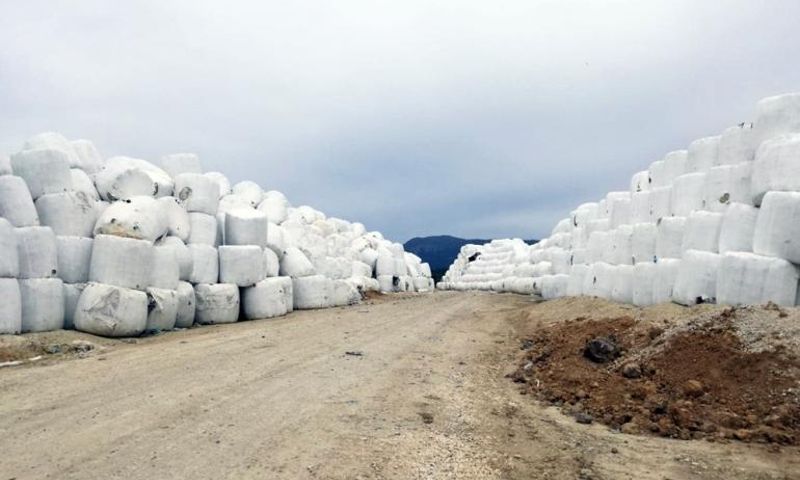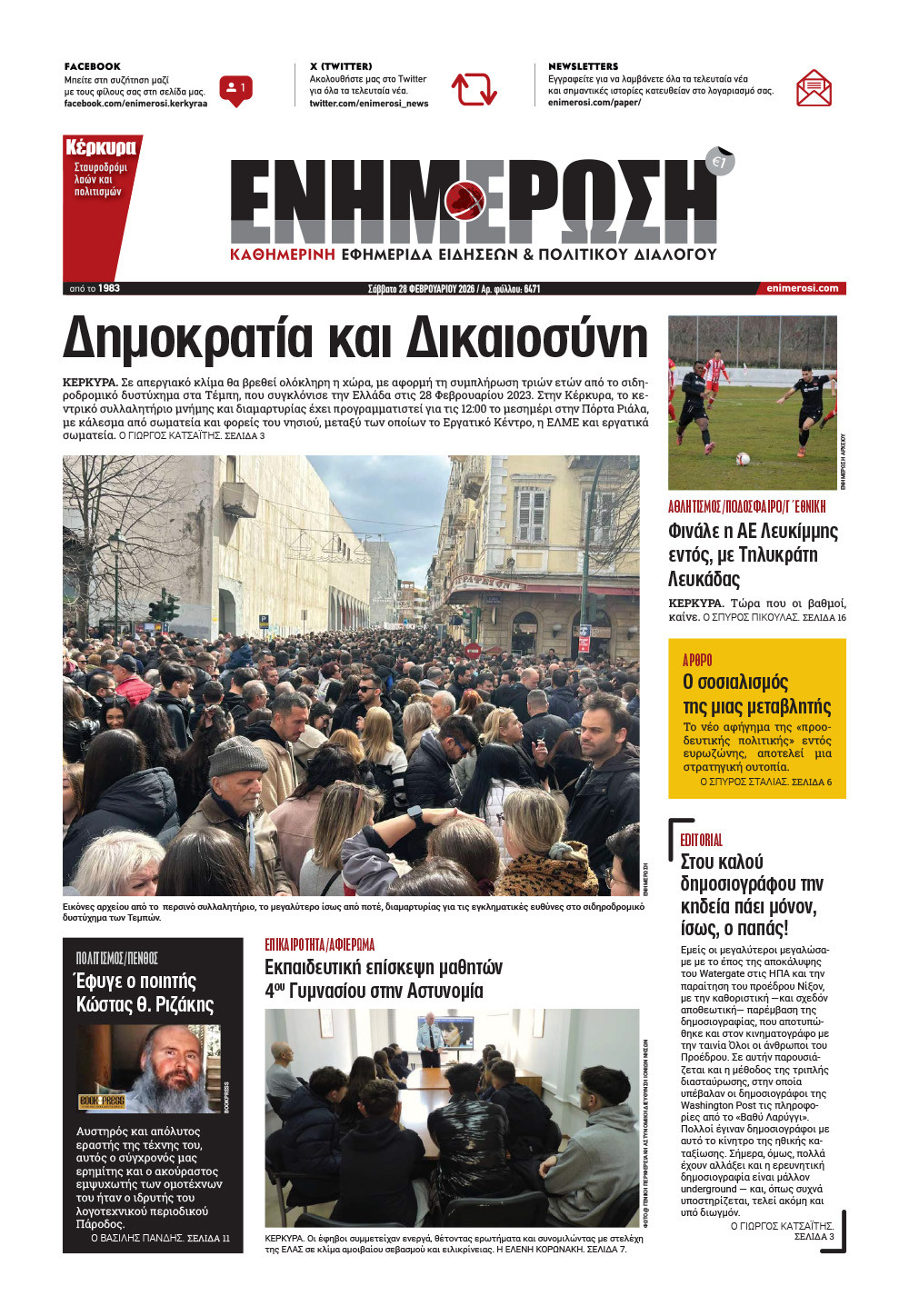Temploni Association: Corfu will face a huge bill for the plastic it doesn΄t recycle

Temploni
19 Mar 2021
/ 10:19
CORFU. Temploni Association says that Corfu will have to pay several million according to the new EU Directive regarding tax on plastic that isn΄t recycled.
Temploni Association is requesting an update from Mayor Meropi Ydraiou as to what she intends to do immediately to avoid facing an unpleasant surprise. It is also asking the President of the Regional Solid Waste Management Organisation (FODSA) Rodi Kratsa to publish the technical specifications of the waste management facility that has been put out to tender so that the public knows exactly what's happening.
Association statement:
"From this year all EU countries will have to pay an €800 'tax' for every ton of plastic that isn't recycled. This means that Greece's delay in increasing recycling will lead to payment of approximately €60m per year over the coming years. The regulation is included in legislation that has been presented to Parliament by the Ministry of the Economy. It says that a new source of funding for the EU budget is being adopted which provides for each country paying €0.80 per kilo for plastic that isn't recycled." (Source: Kathimerini)
In the case of Corfu the annual urban waste produced throughout the island is normally 67,000 tons on average. Approximately 14% of that is plastic, which comes to 9,380 tons. At €800 per ton the tax we will be facing is approximately €7.5m if we continue producing mixed waste.
On the contrary, we have been hearing recently about mixed waste being shipped off the island (which isn't happening...) and celebrating the invitation for tenders for a waste management facility with mechanical sorting for the next thirty years.
Information we have from EU countries with these types of facilities and from those that already exist in Greece tells us that because mixed waste is mechanically processed (as is the plan for Corfu) clean materials for recycling aren't produced resulting in large levels of residue.
If we take the example of the Epirus facility, the residue produced for burial is approximately 40% of the waste taken in without taking the organic waste into consideration.
It should be noted that over 50% of this residue is plastic.
It needs to be restated for the umpteenth time that only by having separate streams for the collection of recyclable materials through sorting at source can we have high-quality materials according to EU Directive 851 which has been incorporated in the new National Waste Management Plan.
If one takes a look at current waste management on our island, it is not difficult to draw one's own conclusions.
And because the countdown has already begun, with all that entails, the local authority and FODSA need to update us as follows:
1. The Mayor needs to tell us what she intends to do immediately to avoid facing an unpleasant surprise following the latest developments.
2. The Regional Solid Waste Management Organisation (FODSA) must publish the technical specifications of the waste management facility that has been put out to tender so that the public knows exactly what's happening.
Association statement:
"From this year all EU countries will have to pay an €800 'tax' for every ton of plastic that isn't recycled. This means that Greece's delay in increasing recycling will lead to payment of approximately €60m per year over the coming years. The regulation is included in legislation that has been presented to Parliament by the Ministry of the Economy. It says that a new source of funding for the EU budget is being adopted which provides for each country paying €0.80 per kilo for plastic that isn't recycled." (Source: Kathimerini)
In the case of Corfu the annual urban waste produced throughout the island is normally 67,000 tons on average. Approximately 14% of that is plastic, which comes to 9,380 tons. At €800 per ton the tax we will be facing is approximately €7.5m if we continue producing mixed waste.
On the contrary, we have been hearing recently about mixed waste being shipped off the island (which isn't happening...) and celebrating the invitation for tenders for a waste management facility with mechanical sorting for the next thirty years.
Information we have from EU countries with these types of facilities and from those that already exist in Greece tells us that because mixed waste is mechanically processed (as is the plan for Corfu) clean materials for recycling aren't produced resulting in large levels of residue.
If we take the example of the Epirus facility, the residue produced for burial is approximately 40% of the waste taken in without taking the organic waste into consideration.
It should be noted that over 50% of this residue is plastic.
It needs to be restated for the umpteenth time that only by having separate streams for the collection of recyclable materials through sorting at source can we have high-quality materials according to EU Directive 851 which has been incorporated in the new National Waste Management Plan.
If one takes a look at current waste management on our island, it is not difficult to draw one's own conclusions.
And because the countdown has already begun, with all that entails, the local authority and FODSA need to update us as follows:
1. The Mayor needs to tell us what she intends to do immediately to avoid facing an unpleasant surprise following the latest developments.
2. The Regional Solid Waste Management Organisation (FODSA) must publish the technical specifications of the waste management facility that has been put out to tender so that the public knows exactly what's happening.












